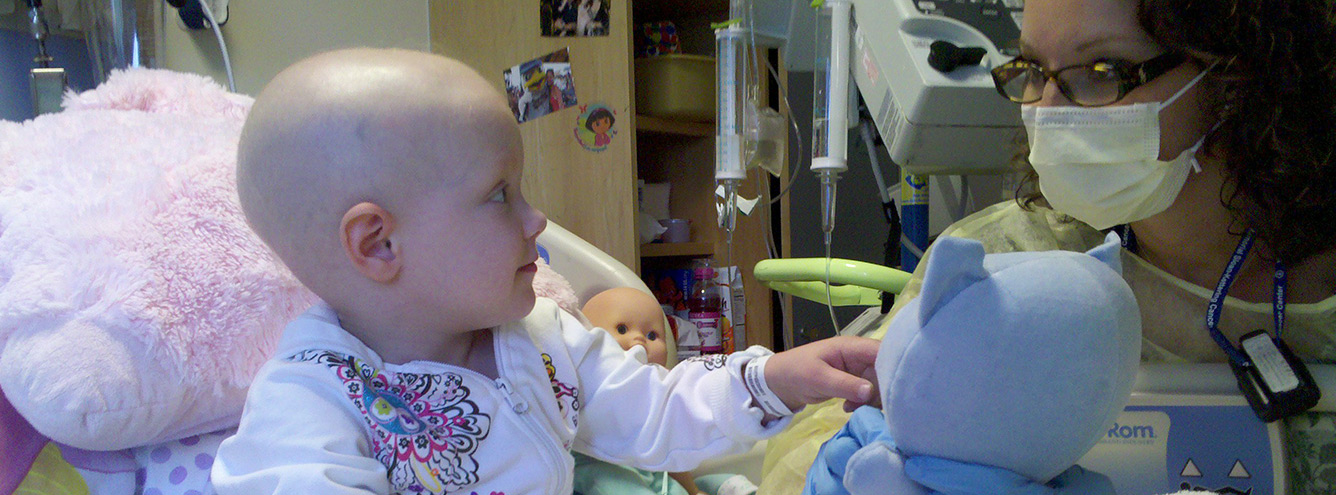Child life helps children of all ages cope with medical experiences and traumatic life events.
Child life promotes effective coping through preparation, education and self-expression activities based on natural child development.
Caring for the whole child, even the tiniest babies can benefit from techniques like infant massage and comfort positioning.
The professionals who provide child life services have various titles around the world, including Child Life Specialists, Hospital Play Specialists, and Child Life Therapists. Because “Child Life Specialist” is the most internationally recognised, WE C Hope uses this title throughout our website.
Certified Child Life Specialists
Certified Child Life Specialists (CCLS) are university trained professionals who support children and their families undergoing challenging life events. They work in hospitals, clinics, funeral homes and other places where children experience stress and trauma.
In hospitals, child life specialists are found in inpatient and outpatient units, and specialty areas like emergency, oncology, surgery and intensive care.
Child life specialists apply child development theory to encourage optimal development and well-being. A child’s welfare also depends on the support of the family. So child life specialists also provide information, support, and guidance to parents, siblings, and other family members.
Child life specialists strive to reduce the negative impact of stressful or traumatic life events for newborns, infants, children, youth and their families. They promote optimal growth and development of children through assessment, intervention, prevention, advocacy and education.
Child life specialists work throughout the United States, Canada, the UK (where they are called “play specialists”) and across the globe, from Japan to South Africa, New Zealand to Kuwait.
Child Life Activities
Child life specialists collaborate with the full multi-disciplinary team, including doctors, nurses, social workers, psychologists, occupational therapists and physical therapists. They encourage approaches that incorporate emotional support for the child.
They liaise with the medical team to educate the child about potentially stressful events before they happen. Activities provide:
- Non-medical preparation for tests, procedures, surgery and treatments.
- Medical play using special dolls, stuffed animals and medical equipment.
- Non-pharmacological pain management strategies.
- Support during procedures.
- Special events, entertainment and activities that promote development
- Support for siblings who are also affected by a child’s illness or trauma.
- Pre-admission hospital tours and resources
- Pre-visit consultations with outpatient families.
- Grief and bereavement support.
Find a Child Life Specialist
If your child’s hospital has child life specialists on staff, you will usually find them in the clinic or ward playrooms. If there is no play room, ask your child’s nurse to help you locate child life staff.
Sometimes, child life specialists will only be called to assist directly with your child if he is having difficulties cooperating with the medical staff. However, child life is most effective if intervention can anticipate and prevent difficulties.
So don’t be afraid to ask for a consultation. If your child is struggling with medical experiences, chances are the child life specialist will be exactly the help you’re looking for!
No Child Life Specialist
Don’t worry if you discover the hospital has no child life specialists. Child life approaches can be used by doctors, nurses, social workers, teachers and parents. Anyone who cares about the well-being of the child can learn many simple techniques to provide highly effective support.
This section contains many suggestions of ways you can help your child. Some are general approaches. Others are tailored for specific procedures or experiences. All are fully accessible to you, and require minimal resources.


